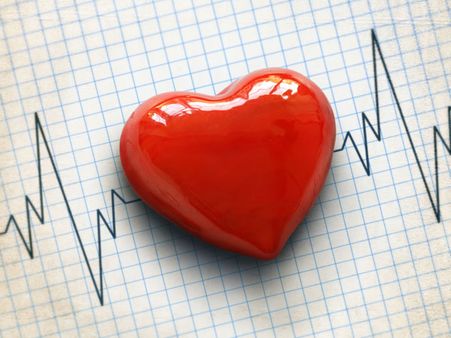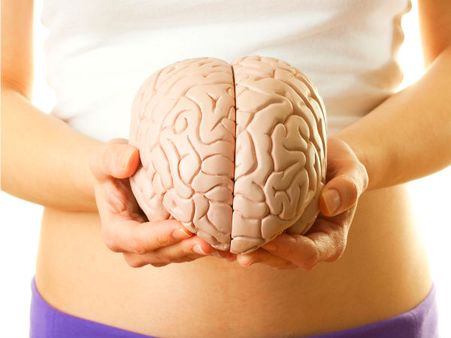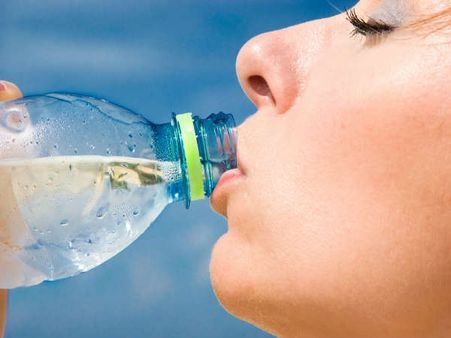Just In
- 17 min ago

- 2 hrs ago

- 10 hrs ago

- 10 hrs ago

Don't Miss
- News
 Odisha Boat Tragedy: Four Dead, Search Continues For Missing Passengers
Odisha Boat Tragedy: Four Dead, Search Continues For Missing Passengers - Movies
 Paarijatha Parvam Full Movie Leaked Online In HD For Free Download Hours After Its Theatrical Release
Paarijatha Parvam Full Movie Leaked Online In HD For Free Download Hours After Its Theatrical Release - Technology
 itel S24 With 108MP AI Dual Camera India Launch Confirmed; Amazon Microsite Goes Live
itel S24 With 108MP AI Dual Camera India Launch Confirmed; Amazon Microsite Goes Live - Finance
 Daily Relative Strength Index RSI In A Bullish Mode of This Pharma Stock; Buy For TP Rs 635-685
Daily Relative Strength Index RSI In A Bullish Mode of This Pharma Stock; Buy For TP Rs 635-685 - Sports
 RCB Green Jersey Match: Record And Stats Ahead of KKR Meeting in IPL 2024
RCB Green Jersey Match: Record And Stats Ahead of KKR Meeting in IPL 2024 - Automobiles
 Mahindra XUV 3XO SUV – Everything We Know So Far
Mahindra XUV 3XO SUV – Everything We Know So Far - Education
 Exam Pressure Does Not Exist; Studying Punctually is Crucial; Says Aditi, the PSEB 2024 Topper
Exam Pressure Does Not Exist; Studying Punctually is Crucial; Says Aditi, the PSEB 2024 Topper - Travel
 Journey From Delhi To Ooty: Top Transport Options And Attractions
Journey From Delhi To Ooty: Top Transport Options And Attractions
This Is What Happens When You Don’t Eat For A Day
Indians love to fast.
Whether it's for Navratri or Ganesh Chaturthi, we all have fasted at least once in our life. In fact, some of us are known to fast once every week on a significant day in a ploy to fulfill our desires.
Setting aside the religious angle for now, did you know that fasting for an entire day is actually very good for your health?
So, let's find out what happens to your body when you don't eat for a day!

The First 8 Hours
The first 8 hours of a 24-hour fasting period is relatively easy. Your body is still digesting your last meal, so you have enough sugar in your blood to keep going as if it's any other day.
The true ordeal begins once the 8 hours are over.

8 Hours Till The End
If you have never fasted in your life, or do it infrequently, your body will alert you that you need food once the 8 hours are over. That means uncomfortable hunger pangs.
But, when you do not fulfill this urge to eat, your body then starts to burn your stored fats as fuel, which is why intermittent fasting is such a popular weight-loss tactic for those who do not like to control their diet every day!
Plus, doing this once or twice a week is a great way to boost your metabolism.

It Protects Your Heart And Body
Fasting for a whole day is known to affect the way your body catabolizes cholesterol and sugar. That's why fasting once or twice every week is said to be a great way to protect your body from diabetes and cardiovascular disorders.
In fact, fasting regularly, once a week, is known to reduce the trimethylamine N-oxide levels in your blood, which reduces your risk of developing coronary artery disease.

It Protects Your Brain
Fasting detoxifies your body and reduces the level of circulating free radicals in your blood. That's why, fasting regularly for a full 24-hour period is known to prevent Alzheimer's and Parkinson's disease.

Who Shouldn’t Fast?
Regardless of its health benefits, fasting is not meant for every body, like the following:
- Those who have a frail frame and high metabolism
- Those suffering from eating disorders
- Those who have type 1 diabetes
- People recovering from a surgery
- Pregnant and breastfeeding women
- And children under the age of 18

The Importance Of Drinking Water During A 24-Hour Fast
Since the aim of a full-day fast is to detoxify your body, the only beverage you should drink is water. Just make sure you drink more water on your fasting day than you'd normally drink because your body will not be reaping any water from the food you eat on that day.

How To Start And End A Full Day Fast
Eat a full meal before you start fasting. This will give your body enough energy to help you get through at least the first 8 hours. Failing to do so will make you "hangry" throughout the 24-hour period.
Wondering what you should eat? Just make it a full, balanced meal with proteins, vegetables, whole-grain products and healthy fats.
Once the 24-hour period is over, do not break your fast by consuming a full, rich meal. That will spell disaster for your body and can lead to stroke, vomiting, and even cardiac arrest!
Instead, break your fast by eating something light - a little khichdi without masala or some fruits. You can gradually eat bigger meals over the next 24-hour period.
-
 relationshipKarwa Chauth 2023: 10 Romantic Date Ideas For Fasting Couples
relationshipKarwa Chauth 2023: 10 Romantic Date Ideas For Fasting Couples -
 healthKawa Chauth 2023: These Are The Energy Boosting Dry Fruits In Sargi Thali That You Should Not Forget To Add
healthKawa Chauth 2023: These Are The Energy Boosting Dry Fruits In Sargi Thali That You Should Not Forget To Add -
 healthRamadan 2023: Tips For Ramadan Fasting In Summer
healthRamadan 2023: Tips For Ramadan Fasting In Summer -
 yoga spiritualityChaitra Navratri 2023: Fasting Rules, Reasons And Methods
yoga spiritualityChaitra Navratri 2023: Fasting Rules, Reasons And Methods -
 wellnessKarva Chauth 2022: What Are The Benefits Of Fasting For Mental Health?
wellnessKarva Chauth 2022: What Are The Benefits Of Fasting For Mental Health? -
 basicsKarva Chauth 2022: Is It Safe To Fast During Pregnancy? Dos And Don'ts For Pregnant Women During Karva Chauth
basicsKarva Chauth 2022: Is It Safe To Fast During Pregnancy? Dos And Don'ts For Pregnant Women During Karva Chauth -
 diet fitnessKarva Chauth 2022: Healthy Foods To Eat After Karva Chauth Fast And What To Avoid
diet fitnessKarva Chauth 2022: Healthy Foods To Eat After Karva Chauth Fast And What To Avoid -
 festivalsYom Kippur 2022: Date And Significance Of The Holiest Day For The Jewish Community
festivalsYom Kippur 2022: Date And Significance Of The Holiest Day For The Jewish Community -
 diet fitnessNavratri 2022: 5 Ways To Detox After Navratri Celebrations
diet fitnessNavratri 2022: 5 Ways To Detox After Navratri Celebrations -
 wellnessNavratri 2022: How Does Fasting Affect Your Body?
wellnessNavratri 2022: How Does Fasting Affect Your Body? -
 festivalsParyushan Mahaparv: Know The History And Significance Of The 8-Day Jain Penance
festivalsParyushan Mahaparv: Know The History And Significance Of The 8-Day Jain Penance -
 festivalsAnant Chaturdashi Vrat 2022: Date, Time, Puja Rituals, Legend, And Significance
festivalsAnant Chaturdashi Vrat 2022: Date, Time, Puja Rituals, Legend, And Significance


 Click it and Unblock the Notifications
Click it and Unblock the Notifications



